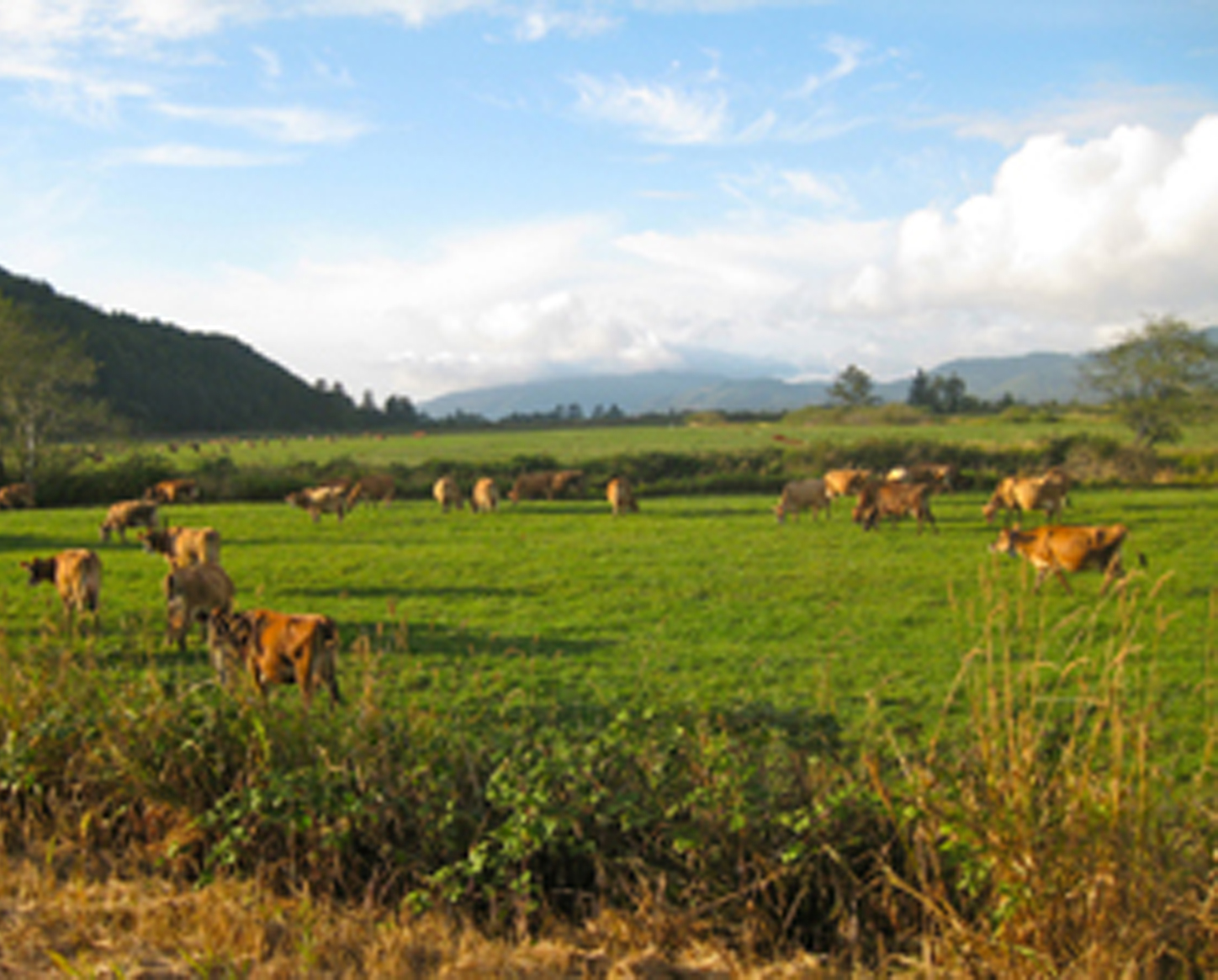
Tracing Steps from Dairy to Digester–the First Site Visit to Scenic Tillamook
For those of you who haven’t traveled Highway 26 from Portland, over the short mountain pass to the Oregon coast, Tillamook is a place of pastoral dairy farms where cows outnumber people, and the ocean breeze mingles with straw and other earthy scents. It’s also the site of several dairy biogas projects designed to reduce greenhouse gas emissions by diverting cow manure to anaerobic digesters where the methane is combusted.
The Climate Trust contracted to purchase carbon offsets from Oregon’s Farm Power Tillamook and Farm Power Misty Meadow digesters over the past couple years, anticipating first delivery in the fall of 2014 following successful project verifications. With boots and a strong stomach, this city dweller recounts a pivotal day for the Tillamook and Misty Meadow manure digester projects—their first verification site visit.
Farm Power Northwest, a Washington-based company founded by two brothers, Kevin and Daryl Maas, developed the Tillamook project by installing an anaerobic digester in response to the needs of local farmers in the community. While most small farmers in Oregon are unable to afford purchasing a digester, Farm Power was able to provide the technology by installing a single large digester to serve five nearby farms.
The Tillamook project is a regional digester, handling manure piped from the barns of five different dairies circling the site, to one shiny new digester, efficiently combusting methane previously released into the atmosphere. The methane also produces up to 1,000 kilowatts of electricity sold to the local public utility district. These small Tillamook farms range in size from 150 up to several hundred cows each.
Another project in Tillamook—also developed by Farm Power—is the Misty Meadow farm digester, which handles the messy manure business of approximately 3,000 cows. For this project, manure is piped to a new anaerobic digester which combusts methane and produces 750 kilowatts of electricity in a combined heat and power generator. Afterwards, the digested manure is sent to a large cement-walled, covered lagoon; the electricity is sold to a nearby utility.
On a sunny day in July, First Environment’s lead verifier conducted the Tillamook regional digester and Misty Meadow dairy project’s site visit. With a clipboard and steady hand, he kicked-off the visit, explaining that the purpose was to assess the project’s data management system, and interview personnel relevant to the verification period. He clarified scope, standards, project boundaries, reporting period, and location of farms among other things.
Throughout the day, while tracing the path of manure from farm-to-digester, our verifier requested detailed documentation, reviewed monitoring logbooks and calculations, took snapshots, and checked flaring and calibration equipment. Though farmers were busy at work, we shook hands at each dairy, walked the stalls, inspected lagoons, counted cows, and were careful to avoid the splash from swishing tails. Six farms later, the day ended in a wrap similar to the start—we learned of next steps: review of documentation, possible data requests, and compilation of verification findings.
The Tillamook and Misty Meadow project verifications are still in process. While The Climate Trust waits for the project’s first certified carbon offsets, at least one city dweller still marvels at the complex system of piping dairy manure from farm stall-to-digester. Carbon offset projects of this type efficiently destroy methane emissions, a greenhouse gas 21 times more potent than carbon dioxide.
Dairy digester projects of this kind also provide many community and environmental benefits. Digester installation provides a closed loop system for diverting manure while reducing odors, and improving water quality in the region. If it weren’t for the digesters, these Tillamook farmers would still be spending valuable time trying to keep up with the continual stream of manure, spreading it raw into the fields. Because of the Tillamook digesters, the remaining solids are sterilized through the heating process, and can now be used as animal bedding, or spread in the fields as a cleaner fertilizer.
In Oregon, carbon offset projects eligible to receive credits face financing and other hurdles. Projects must have investors, buyers, technical experts, and finally must meet requirements of the carbon market’s domestic standards. The Climate Trust, along with its many partners, is finding ways to meet these requirements head on, while overcoming some of the more ponderous carbon offset project hurdles, and delivering real climate solutions to our home state.